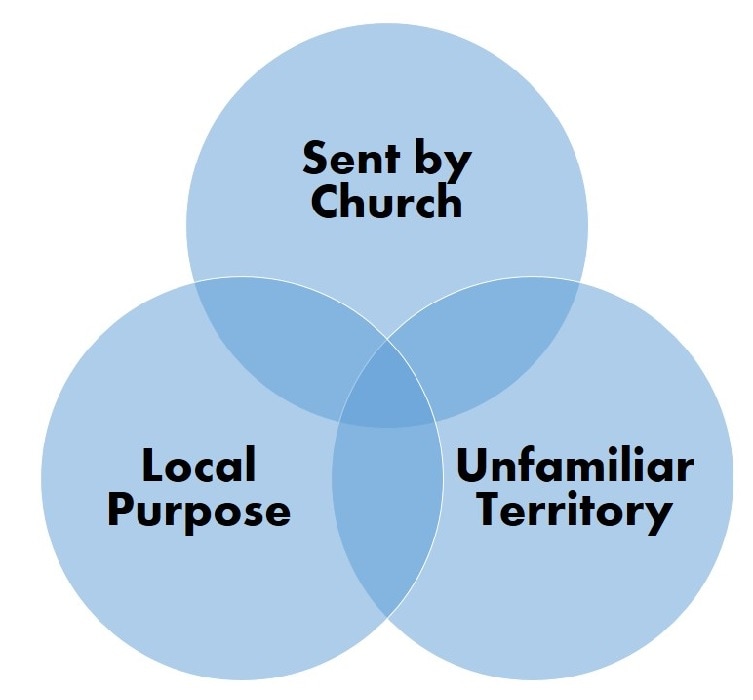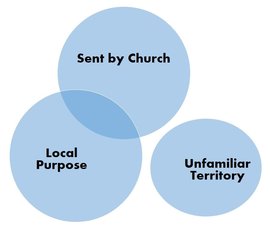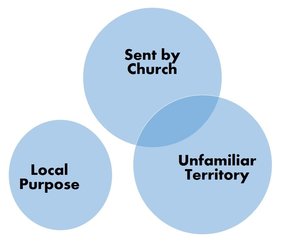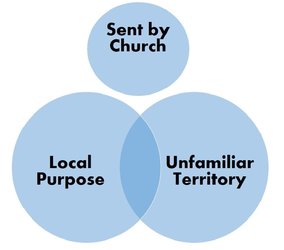|
Here's a question from a friend who is a missionary. I received the email a few weeks ago. I just got around to responding today. I have taken out or altered information that would identify this person or where they serve even though I don't think there is anything critical or off-putting in the question or its asking. "I have some questions for you, just for my own information. I think it was you who said that the United States was now considered a mission field by the Church of the Nazarene. I have also heard of missionaries from [our part of the world] that are going to the U.S. to be missionaries. Why do we send missionaries from the US to other countries and vice a versa? Why don't we just keep those that are called in their own countries to do the work that a missionary from another country might do? I do not consider the [country I live in] a mission field as they have very large churches here in [the capital city] that are completely staffed and run by nationals. I understand [our] education and credentials have brought [us] here to fulfill a requirement by the [national] Government's [--] policies. [We are] filling a void as there are not many [local or regional workers] with the credentials needed. But other countries where we have nationals that could run the districts, regional offices, etc., why do we continue to send American Missionaries? Just some things I have been thinking about."
Self-governing: District Organization (advisory boards, assemblies, and auxiliaries (discipleship, youth, mission education) Self-financing: Raising funds for rolling out a vision for multiplying churches and makingdisciples, also assisting the poor through compassionate ministries,buying properties, constructing buildings, paying full-time ministers, and contributing to the World Evangelism Fund to help other parts of the world Self-reproducing: catching a vision for making disciples and multiplying churches through seeing their context through God’s eyes and shining the light into spiritual darkness Self-theologizing: educating pastors and lay people to understand Scripture and think through the difficult questions about God, the church, and the world. So, there is a strong system of discipleship at all levels as well as a well-regarded and well-funded system of theological education in place through centralized schools or decentralized training on the districts All this means is that outside missionaries are necessary until a church can do all three or four of these through local leadership and initiative. So, missionaries are the first to bring the message, and then fill gaps until local work is viable on its own. Missionaries should plan to always work themselves out of a job. The problem is local churches, at home or abroad, do not become proficient at all four "selves" at the same time. There might be enough local leadership to be self-governing in church development but they are not yet able to finance all the necessary work to be self-financing. They might not have enough local initiative to be self-reproducing so they need a push or impetus from the outside even though they are doing well in connecting with a local system of education that self-theologizes by developing teachers of pastors. So, in a nutshell, mission is the church moving outward. This means missionaries from the US going to the Philippines, Koreans going to Africa, Brazilians going to the US, etc. All this work (the missio Dei: God sending into the world) will last until the work is done and God’s Reign has finally come. What is a missionary?
And, so a missionary should be: "sent by the church . . . with a purpose . . . by walking into unfamiliar territory." Missionaries are the ones in the center--"the sweet spot"--of the Venn diagram above. Outside of the center, it gets fuzzyNow, here is where it gets fuzzy, and sometimes difficult. Among Nazarenes, we have people on missionary contract or paid through WEF that are not by strictly “missionaries”: the first ones to a place unreached by the Good News or strategizing about how to expand into new places. They may very well be "sent" with "local intentionality" but very much at home, working in familiar cultures, language, and customs. They did not have to cross a border into "unfamiliar" territory. They are office workers, finance people, teachers, administrators. I think the leaders in the Global Mission Office and the regional offices would agree with me. I agree with them on this point: these positions might not be missionaries per se, but they are the “engine” behind the mission. The apostolic missionaries entering "unfamiliar territory" cannot do their work without these other folks helping it along as support staff. They will be missionaries until the local church structure can "self-finance" this role for itself. In every case, the goal should be, and usually is, to transfer responsibility to local initiative (as quickly as possible) within the structure of the three/four-self formula. The missionary support structure should stay in place as long as it is needed, and no longer. An exception might be cross-cultural workers that are invited to a localized assignment as co-laborers and colleagues in the mission of God. I know there are denominational discussions right now about how to define the work of a missionary. I don't really want to step into this discussion directly or interfere with its development. Things seem to be going well. I do, however, want to look at the various nuances of the Venn diagram above, though that are pertinent to this discussion
I will let this go for now. I am still working on these definitions and their ramifications for the global church as well as the church locally.
0 Comments
Leave a Reply. |
Bio
teacher, writer, Archives
August 2022
Categories
All
|








 RSS Feed
RSS Feed